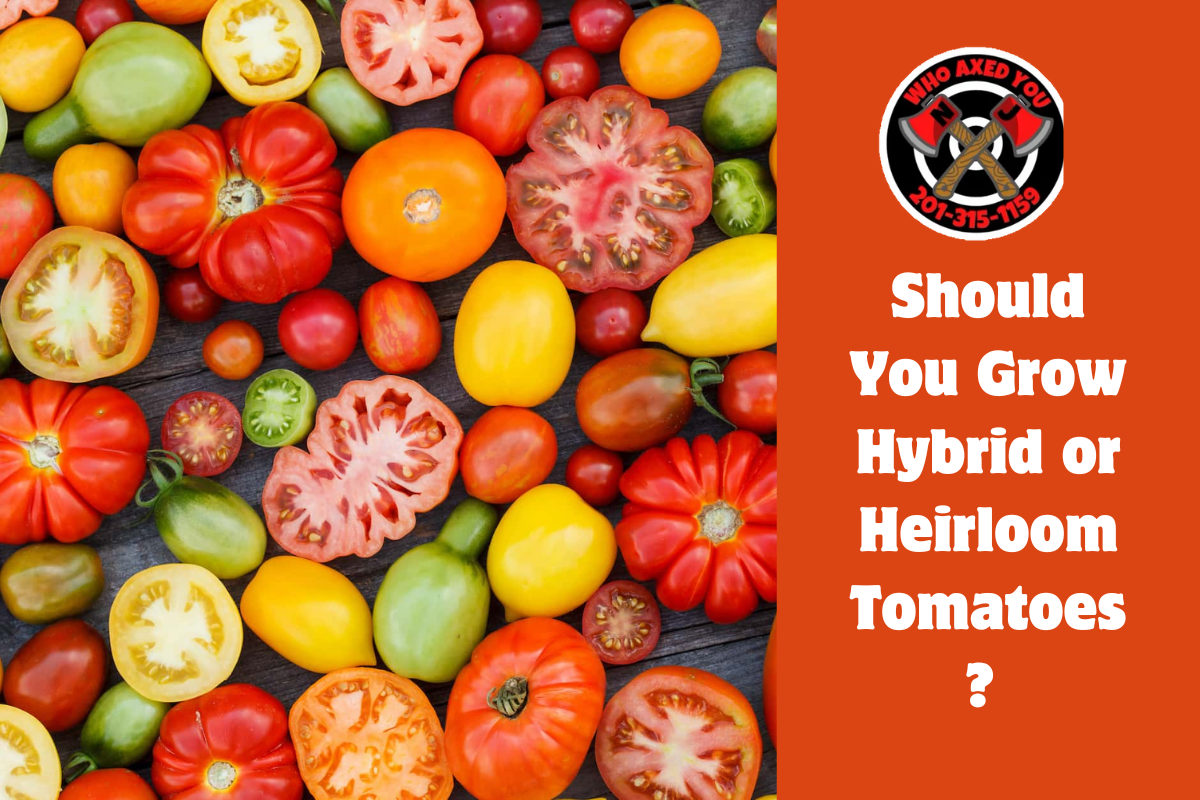Should You Grow Hybrid or Heirloom Tomatoes?:- There are a number of considerations to take into account when selecting between hybrid and heirloom tomatoes, including flavor, resistance to disease, and overall gardening objectives. Due to the fact that both varieties have their own set of benefits and drawbacks, the choice between them is a matter of individual preference as well as the particular growing conditions.
Should You Grow Hybrid or Heirloom Tomatoes?
When choosing between hybrid and heirloom tomatoes, there are a number of factors to take into consideration, such as the flavor, resistance to disease, and overall gardening goals that you want to achieve. The choice between the two types is a matter of personal preference as well as the specific growth conditions that are present. This is because both varieties come with their own individual set of advantages and disadvantages.
Heirloom Tomatoes
In terms of both definition and characteristics, heirloom tomatoes are tomato varieties that have been handed down from generation to generation due to the desired characteristics they possess. They are open-pollinated, which means that they are pollinated within their natural environment by natural mechanisms such as insects, birds, wind, or other processes.
These tomatoes are typically available in a broad variety of shapes, sizes, and colors, ranging from the traditional red beefsteak to lemon-shaped types that are yellow in color. Advantages include: One of the most well-known characteristics of heirloom tomatoes is their outstanding flavor. They are preferred by a large number of aficionados and chefs due to the fact that their flavors are deep and complex, and they can vary substantially from variety to variety.
ALSO SEE : The Step-by-Step Guide to Making a Delectable Asparagus Tart
There is a wide variety of options available to choose from when it comes to the appearance and flavor of heirloom tomatoes. Gardeners have the opportunity to make use of one-of-a-kind cultivars that might not be accessible for commercial sale. Because they are open-pollinated, heirloom tomatoes yield seeds that, if kept correctly, will produce tomatoes that are identical to the type that was originally grown. It is because of this that gardeners are able to keep their preferred types from one year to the next.
Potential drawbacks: Disease Resistance: In general, heirloom tomatoes have a lower level of resistance to illnesses when compared to hybrid tomatoes. It is possible that this will make it more difficult to cultivate them, particularly in regions that are prone to particular tomato illnesses such as blight. Yield and Consistency:
The yield of heirloom tomatoes can vary, and depending on the type and the growing conditions, they may not produce as consistently or abundantly as hybrid tomatoes. This is because hybrid tomatoes are more reliable. When compared to hybrids, which yield fruits that are more uniform in size and shape, some heirloom varieties may produce fruits that are smaller or of an irregular shape. This can have an impact on the marketability of these kinds as well as their aesthetic appeal.
Hybrid Tomatoes
Hybrid tomatoes are produced from two different varieties of tomatoes, often with the purpose of combining specific characteristics such as resistance to disease, uniformity in size and shape, or increased shelf life. However, hybrid tomatoes are also known as hybrid tomatoes. Plant breeders are responsible for their production through the process of regulated cross-pollination.
Advantages include: Disease Resistance: Because of the prevalence of common tomato illnesses including Fusarium wilt, Verticillium wilt, and tomato mosaic virus, hybrids are frequently produced to be resistant to these diseases. Especially in settings that are difficult to cultivate, this might lead to plants that are healthier and produce more fruit or vegetables.
Generally speaking, hybrids are able to produce larger yields of fruits that are consistent with one another. Those who are searching for reliability in crop production, whether they are home gardeners or commercial producers, may find this particularly beneficial. Adaptability: Certain hybrid types are bred to be able to thrive in particular growing conditions, such as heat tolerance or in growing seasons that are very short. This makes them adaptable and suitable for a wider variety of temperatures and situations than they would otherwise be.
Potential drawbacks: In spite of the fact that many hybrids have been cultivated to boost disease resistance and yield, it is possible that certain hybrids have lost their flavor when compared to generations of ancestral species. The development of newer hybrids, on the other hand, is increasingly concentrating on preserving flavor in addition to other desired characteristics.
Storing Seeds: Hybrid tomatoes do not consistently yield seeds that will grow in a manner that is consistent with the type. It is possible that the plants that are produced from seeds that have been preserved and planted will not have the same traits as the parent plant. This can be a disadvantage for gardeners who prefer to save seeds after planting them.
In terms of look and flavor qualities, hybrid tomatoes offer a more restricted variation than heirloom tomatoes do. This is because hybrids provide a greater variety of tomatoes. Those gardeners who are interested in trying out a large variety of tomato cultivars can find this to be a problematic aspect.
